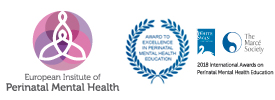 Childhood obesity is one of the most serious public health challenges of the 21st century with far-reaching and enduring adverse consequences for health outcomes. Over 42 million children younger than 5 years worldwide are estimated to be overweight or obese, and if current trends continue, then an estimated 70 million children will be overweight or obese by 2025.
Childhood obesity is one of the most serious public health challenges of the 21st century with far-reaching and enduring adverse consequences for health outcomes. Over 42 million children younger than 5 years worldwide are estimated to be overweight or obese, and if current trends continue, then an estimated 70 million children will be overweight or obese by 2025.
Childhood overweight / obesity was negatively associated with psychological comorbidities, such as depression, poorer perceived lower scores on health-related quality of life, emotional and behavioral disorders, and self-esteem during childhood.
Numerous studies continue to report an association between depression and childhood obesity. Overweight children were more likely to experience multiple associated psychosocial problems than their healthy-weight peers, which may be adversely influenced by obesity stigma, teasing, and bullying – these are pervasive and can have serious consequences for emotional and physical health and performance. It remains unclear as to whether psychiatric disorders and psychological problems are a cause or a consequence of childhood obesity or whether common factors promote both obesity and psychiatric disturbances in susceptible children and adolescents.
A RAY OF HOPE
A growing body of research suggests that babies who consume only breastmilk are less likely to be overweight as children or adults. In this recent study, Briollais and colleagues investigated whether the weight-reducing impact of breastmilk can counteract the effects of genetic variations that increase the odds that a person will become obese.
In 18-year-old boys whose genes put them in the “high-risk” category for obesity, exclusive breastfeeding until 5 months of age reduced their BMI by 1.14 kg/m2. In girls, the impact was even larger, with a reduction of 1.53 kg/m2. Breastfeeding exclusively until 3 months of age, or a mix of breastmilk and formula, did not cause the same BMI reduction in high-risk individuals.
“Obesity is a global problem that is causing a drop in wellness that is straining our health systems,” said Dr. Briollais. “Our study shows that while our genes do influence our risk of developing obesity, this predisposition is not irreversible and can be beneficially modified by exclusive breastfeeding.”
Family situations and influences also need to be considered while considering risk factors for childhood obesity and/or developing psychological disorders. The emotional closeness and protection that the breastfeeding relationship fosters may also be helpful in preventing childhood obesity.
A cohesive and strategic approach to tackle this current obesity epidemic is necessary to combat this increasing trend which is compromising the health and well-being of the young generation and seriously impinging on resources and economic costs. Promoting, supporting and protecting optimal breastfeeding must be at the top of the list.
Briollais and colleagues urge that, from a public health standpoint, breastfeeding should be a priority for babies who are most at risk, to set them on the right path for growth and development and to reduce the risk of obesity-associated diseases as adults, including mental health problems.
Related links
Psychology and Neuroscience of Breastfeeding, an introductory course – 2nd online edition
Positive effect of maternity leave on attachment and quality of mother–child interactions
Ecopsychology and the newborn. Part II: restoring the original paradigm







